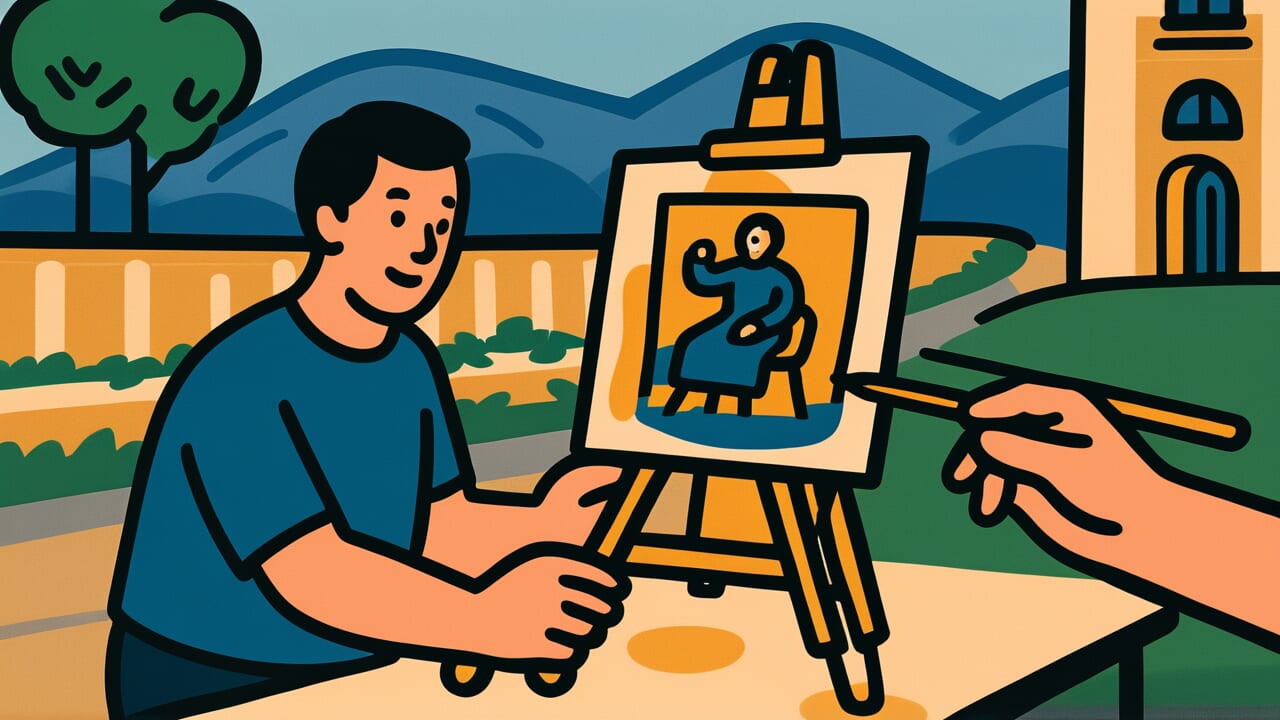How to Read “Draw a picture according to the place”
Tokoro ni shitagau e wo kaku
Meaning of “Draw a picture according to the place”
“Draw a picture according to the place” teaches that you should adapt your behavior to match the customs and traditions of the place you visit.
It emphasizes the importance of respecting local rules and culture rather than stubbornly sticking to your own familiar ways and ideas.
This proverb is used when you find yourself in a new environment. It serves as a guide for how to behave in unfamiliar places like a new workplace after a transfer, a neighborhood after moving, or a destination while traveling.
Each place has its own unique reasons and background that have developed over many years. Understanding and respecting these is the first step to building smooth relationships with others.
This teaching remains important in modern times. Different regions have different customs. Each company has its own culture. Every group has unspoken rules.
We need to recognize these differences and respond flexibly. Rather than forcing your own values on others, first read the atmosphere and make an effort to adapt.
This creates harmony with those around you.
Origin and Etymology
No clear written records explain the origin of this proverb. However, we can make interesting observations from how the phrase is constructed.
The core of “Draw a picture according to the place” lies in the phrase “draw a picture.” The “picture” here doesn’t mean a literal painting.
It represents behavior and attitude appropriate to the situation. In other words, it teaches us to act as if drawing an appropriate “picture” according to the land or place.
During the Edo period, samurai often traveled to different regions through the sankin-kotai system. They needed to adapt to different customs and manners in each place.
Merchants also traveled around various regions for trade. Respecting local customs was directly connected to business success.
The expression “draw a picture” carries an active nuance of consciously adjusting your behavior. It’s not about passively following orders.
Rather, it suggests the agency of actively “drawing out” an appropriate form to match the situation. This expression conveys the same teaching as the more famous proverb “When in Rome, do as the Romans do.”
However, it has been used as a proverb with its own unique visual imagery.
Usage Examples
- When I’m assigned to the overseas branch, I’ll learn local customs with the intention to draw a picture according to the place
- At my country relatives’ house, I drew a picture according to the place and adjusted to their early-to-bed, early-to-rise lifestyle
Universal Wisdom
The proverb “Draw a picture according to the place” contains fundamental wisdom about human society. It’s about the importance of recognizing diversity and maintaining harmony.
Every person has values and habits formed in the environment where they grew up. These are part of our identity and cannot be easily changed.
At the same time, humans are social creatures. We must live together with others.
This proverb teaches the balance between self-assertion and cooperation. When you enter a new environment, friction will inevitably occur if you try to force your own way.
On the other hand, if you show an attitude of understanding and respecting local customs, you’ll be accepted more easily. This is a universal law of human relationships.
What’s interesting is that this proverb combines the passive word “follow” with the active expression “draw a picture.” It’s not mere obedience.
It shows the agency of choosing to adapt by your own will. This is the depth of human wisdom.
We can reach out to others without losing ourselves. That flexibility is the secret to how humanity has built diverse cultures and coexisted throughout history.
When AI Hears This
The human brain is structured to automatically absorb environmental information and change its judgments. Cognitive science experiments have confirmed that responses to identical questions can vary by up to 30 percent depending on whether asked in a hospital or an office.
This phenomenon is called the “framing effect.” The brain unconsciously incorporates the context of place into its decision-making process.
Even more interesting is the phenomenon of “context-dependent memory.” One study found that word lists memorized underwater were recalled 40 percent better underwater than on land.
In other words, when the brain stores information, it packages environmental data like light, sound, and smell together with it. When the environment changes, the memories and thought patterns you can access physically change as well.
What this proverb suggests is not that humans “consciously choose to draw different pictures according to place.” Rather, it’s that “when place changes, the brain’s operating mode itself switches, and a different picture is naturally output.”
We believe our thoughts are independent. But in reality, we’re like applications running on the invisible operating system called environment.
Lessons for Today
What this proverb teaches modern people is that flexibility is the power to survive.
In today’s globalizing society where diverse values intersect, we have more opportunities to encounter different cultures and customs. Job changes, transfers, moving, joining online communities.
We’re constantly stepping into new “places.”
In such times, sticking stubbornly to your own way will only lead to isolation. First, it’s important to observe and try to understand.
Why does that place have such rules? What history or reasons lie behind them? By thinking this way, you’ll see the common humanity beneath surface differences.
Of course, you don’t need to follow everything. Cherish your core values while flexibly changing how you express them and your methods.
That’s the modern practice of the wisdom “Draw a picture according to the place.”
Your flexibility is the key that opens doors to new worlds. Don’t be afraid to jump into new environments.
New discoveries and growth surely await you there.



Comments